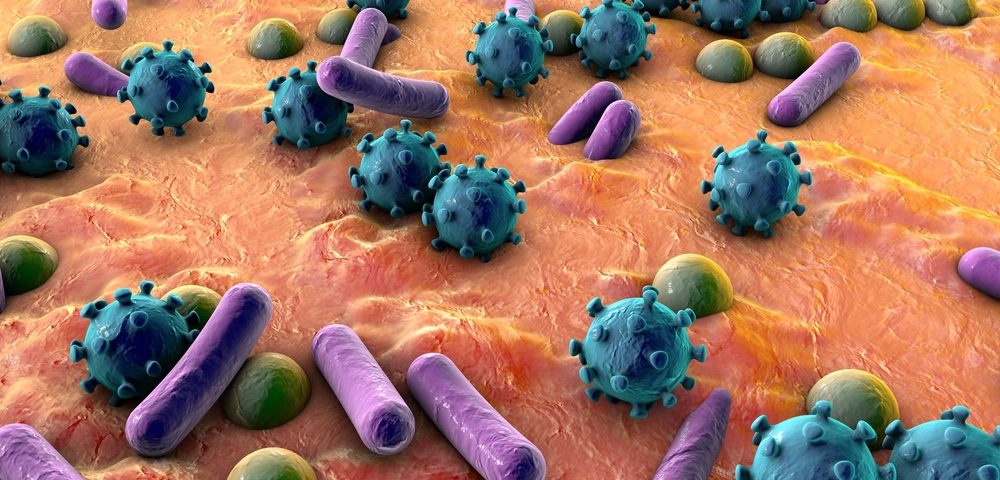A protein variant called IRAK-M is capable of protecting mice against inflammatory bowel disease (IBD) and certain forms of colon cancer, researchers have found. This outcome eventually could be a viable therapeutic strategy for preventing inflammatory bowel disease and cancer in humans, according to the lead member of the research team.
The study “Enhanced Mucosal Defense and Reduced Tumor Burden in Mice with the Compromised Negative Regulator IRAK-M” was published in the journal EBioMedicine.
High, abnormal inflammation in the gut is the underlying cause for IBD. Moreover, a significant proportion of IBD patients have increased risk for developing colitis-associated cancer, a form of colon cancer preceded by clinically detectable IBD, either Crohn’s disease (CD) or ulcerative colitis (UC).
Our gut is colonized by a diverse range of bacteria populations, collectively known as the gut microbiome, increasingly recognized for its protective role. However, uncontrolled inflammation damages the protective cellular lining in the intestine, and also is associated with alterations to the bacteria pool, enhancing bacteria invasion of the mucosa.
A team of researchers at Virginia Tech University focused on a single protein, called interleukin receptor associated kinase M (IRAK-M). The team found that IRAK-M expression is significantly increased (aka “up-regulated”) in human patients with IBD and colitis-associated cancer. Moreover, the same pattern of up-regulation was detected in advanced stages of colorectal cancer.
Previous studies on protein variant IRAK-M showed conflicting results. Using knockout (meaning deleted) mice for IRAK-M (called Irak-m−/− mice) researchers showed “that these animals are highly sensitive to both inflammation and neoplasia. However, contrary to these prior observations, more recent studies have revealed that Irak-m−/− mice are actually protected from inflammation driven tumorigenesis in the colon,” authors wrote.
“Due to these conflicting reports, we sought to better elucidate the contribution of IRAK-M during IBD and colitis associated tumorigenesis,” they added.
The researchers showed that, indeed, Irak-m−/− mice were protected against the action of chemical (dextran sulfate sodium, DSS)-induced gut inflammation and azoxymethane/DSS tumor formation. Analyzing the immune system of these knockout mice, researchers found it to be “primed and highly efficient at eliminating components of the microbiome translocating from the gastrointestinal lumen following damage to the epithelial barrier,” the researchers wrote. This was related to the existence in these mice of a slightly different IRAK protein that protected them against both UC and colitis-associated cancer.
“When we tested mice with the altered IRAK-M protein, they had less inflammation overall and remarkably less cancer,” said Coy Allen, PhD, in a press release. Allen is an assistant professor of inflammatory disease in the Department of Biomedical Sciences and Pathobiology in the Virginia-Maryland College of Veterinary Medicine and a Fralin Life Science Institute affiliate.
These findings carry great promise for therapeutics, “Ultimately, if we can design therapeutics to target IRAK-M, we think it could be a viable strategy for preventing inflammatory bowel disease and cancer,” Allen concluded.

